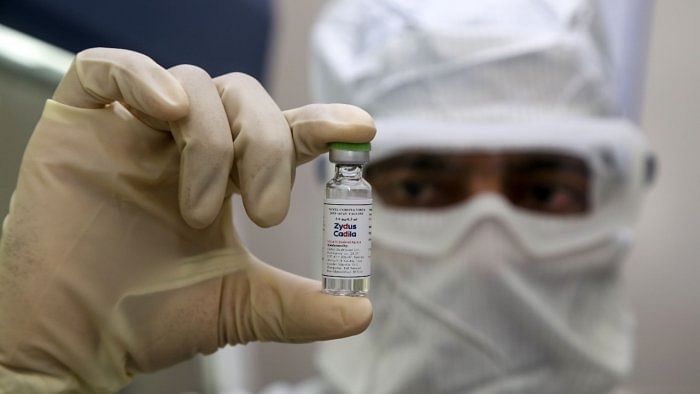
The Union government is expecting Zydus Cadila's needle-free Covid-19 vaccine ZyCoV-D to be available from the first week of October.
Further, a decision on whether all children or only those with co-morbidities will be administered the Covid-19 vaccine on priority has not yet been taken, the government said on Thursday.
Indigenously developed Zydus Cadila's ZyCoV-D on Friday received approval for Emergency Use Authorisation from the drug regulator, making it the first vaccine in the country which would be administered in the age group of 12-18 years.
On the kind of negotiations in terms of pricing and when the government plans to procure ZyCoV-D, Union Health Secretary Rajesh Bhushan said, "Coming to negotiations, what we have understood from media reports as well as our own engagement with the vaccine manufacturing company is that they would be in a position to make available this vaccine from the first week of October."
"So we are in talks with them and the moment we crystallise the terms and conditions of procurement we will share it with you," he said at a press conference.
On whether children with comorbidities would be prioritised for vaccination, Bhushan said whether all children should be taken up on priority or children with comorbidities should be taken up is an issue on which the standing committee on Covid-19 of NTAGI makes a recommendation.
"The recommendation has not been made as yet and once it is made then the NTAGI takes a call on it and recommends it to the government and then that process is concluded and a decision is taken," he said.
Covishield, Covaxin and Sputnik V vaccines are being given to only those above 18 years and unlike ZyCoV-D, which is three-dose, these are administered in two doses.
The Department of Biotechnology (DBT) has said that ZyCoV-D is the world's first DNA-based vaccine against the coronavirus and when injected produces the spike protein of the SARS-CoV-2 virus and elicits an immune response, which plays a vital role in protection from the disease as well as viral clearance.
It said that interim results from Phase-III clinical trials in over 28,000 volunteers showed primary efficacy of 66.6 per cent for symptomatic RT-PCR positive cases. This has been the largest vaccine trial so far in India for Covid-19, the DBT said.
The vaccine had already exhibited robust immunogenicity and tolerability and safety profile in the adaptive phase one and two clinical trials. Both Phase one/two and Phase three clinical trials have been monitored by an independent data safety monitoring board, it added.